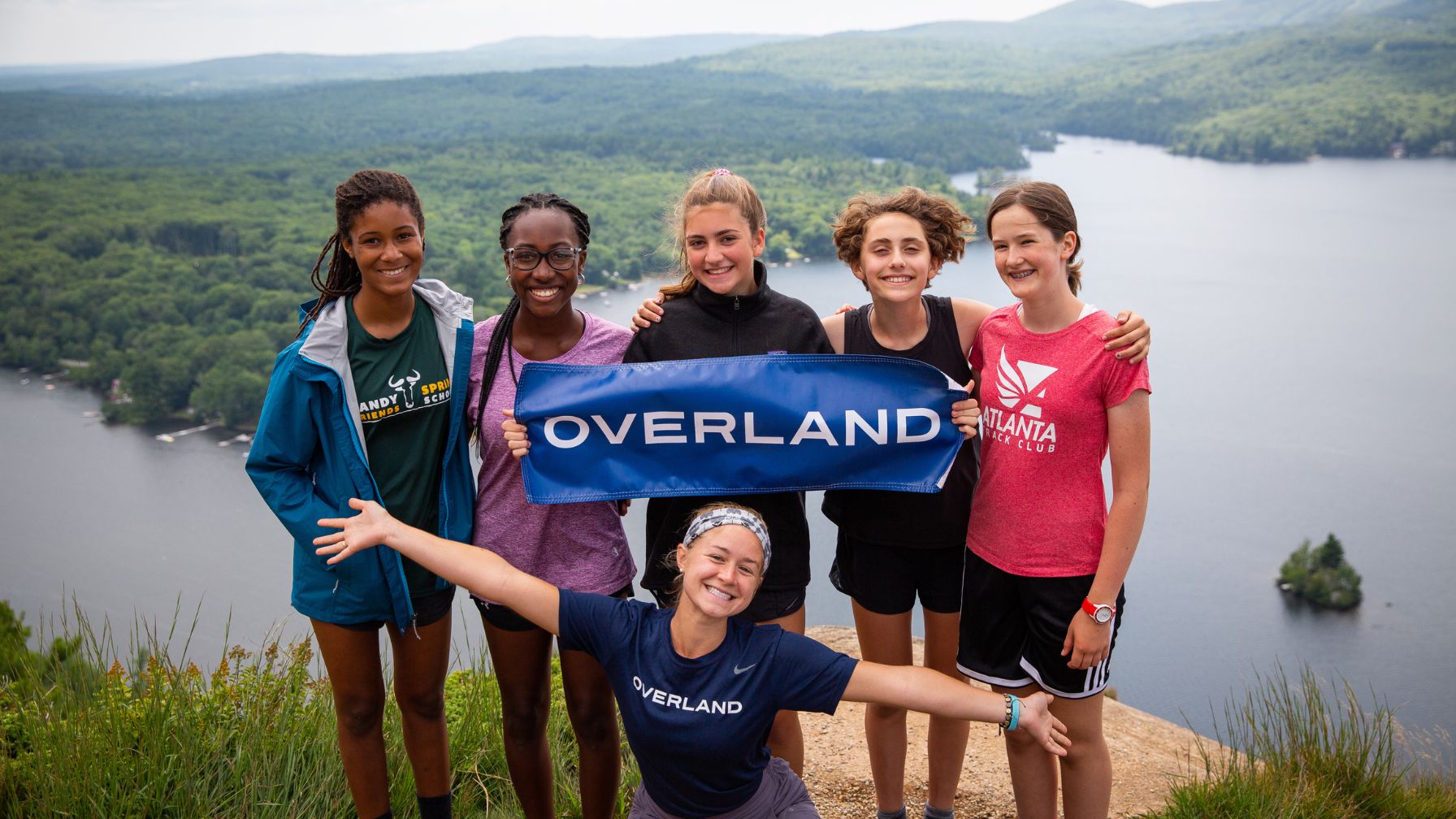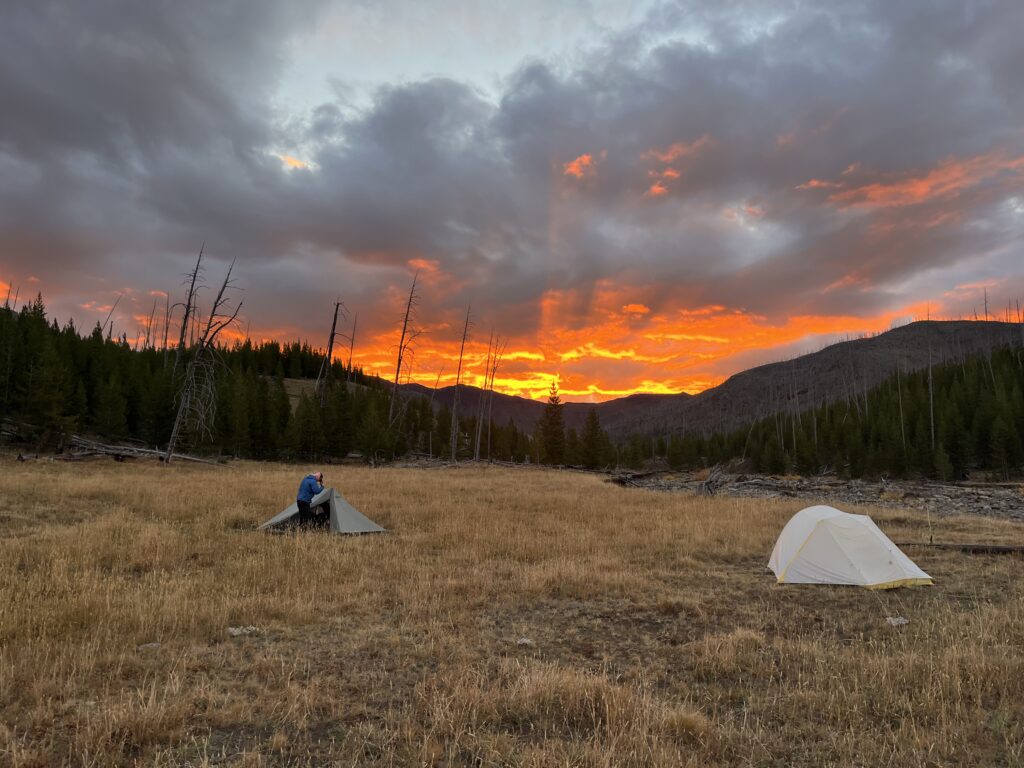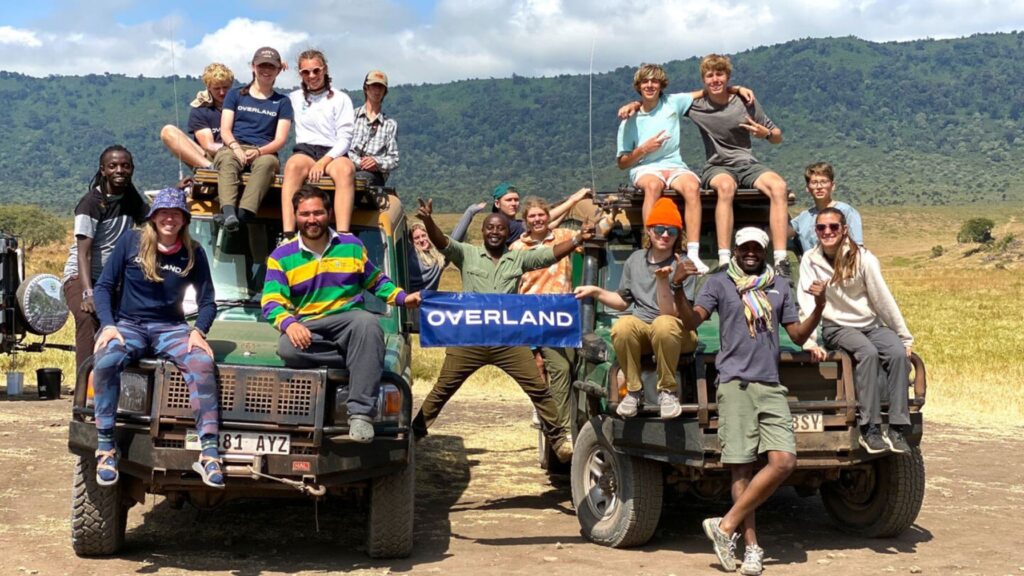Preparing for summer camp is the single most important thing you can do as a parent to make sure your child’s adventure goes smoothly. Whether it’s their first time away from home or they’re returning for another adventure, the right prep can calm their nerves and make the journey far more rewarding.
How to prepare for summer camp:
Here are 10 effective ways to get your child ready:
- Talk through what a day or week at camp looks like
- Help your child build confidence with simple responsibilities
- Choose a camp that matches their personality and interests
- Double-check all health forms, permissions, and emergency contacts
- Speak with the camp staff about any medical or allergy needs
- Follow the packing list
- Add small comforts from home
- Normalize homesickness and offer coping strategies
- Let your child lead part of the preparation
- Stay upbeat during drop-off to model confidence
In this guide, we’re going to break down how to prepare for summer camp like a super parent, both physically and emotionally, so your child has an unforgettable (in the best way possible) summer.
1. Talk Through What a Day or Week at Camp Looks Like

One of the best ways to start preparing for summer camp is to talk about it. Many kids (and adults) have a fear of the unknown. This can be the most overwhelming part.
We can mitigate the worry that comes with that by walking them through what a typical day might look like, from waking up and eating meals to activities, rest time, and lights out. The simple act of knowing can help them feel more in control and less anxious.
You don’t need exact details, but having a general outline based on the camp’s website or welcome packet is a good start.
Ask what they’re most excited about and if anything is making them nervous. When kids have a mental map of the day, the experience feels more familiar.
2. Help Your Child Build Confidence with Simple Responsibilities
Another big part of preparing for summer camp is helping your child feel capable and independent.
At camp, kids manage a lot of basic daily tasks without the help of an adult. This might include organizing their gear, keeping track of their belongings, or helping out with meals. Practicing those things at home can go a long way in making them more confident and self-sufficient before they get to camp.
One of the biggest benefits of summer camp is how it can help your child learn and grow in new ways, from building friendships and social skills, to teaching resilience and independence.
Pro Tip: Start small. Have them make their own bed in the morning or pack their lunch for school.
How To Choose A Summer Adventure For Your Child
Get first-hand insights into what you should look for when choosing the next summer travel adventure for your child.
3. Choose a Camp That Matches Your Child’s Personality and Interests
There are all different types of summer camps to choose from.
Some focus on adventures in faraway places, while others focus on quieter service, creativity, or cultural learning.
When preparing for summer camp, one of the most important decisions you’ll make is choosing a program that fits your child’s interests and personality.
Are they the outdoorsy type? Do they thrive on challenges? Maybe they’re more curious about foreign cultures and new languages?
Overland Summers offers a wide range of programs, including scenic, multi-day hiking and kayaking trips in the U.S. and immersive international experiences in Europe.
Overall, the better the fit, the more excited your child will be heading into summer.
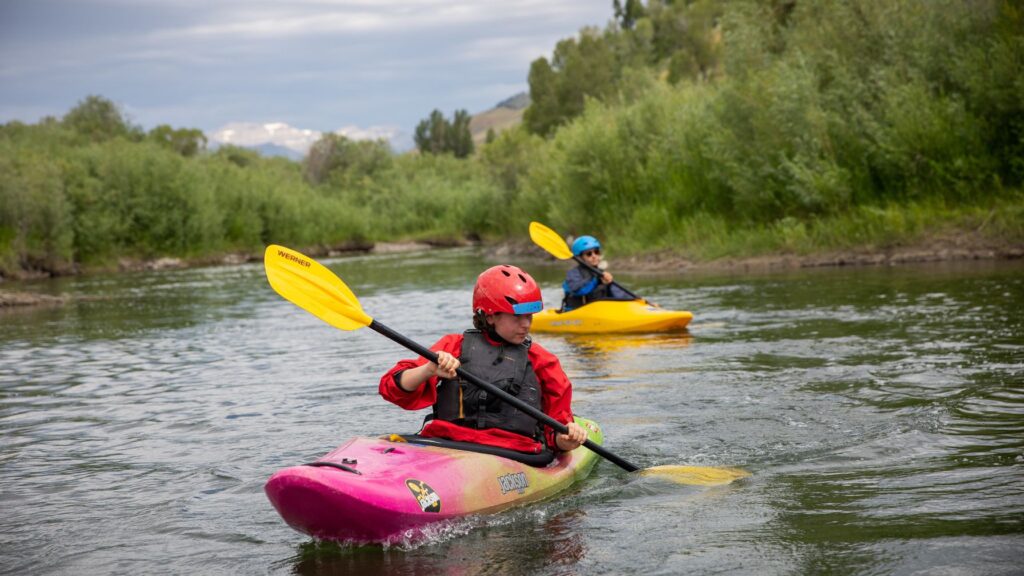
4. Double-Check All Health Forms, Permissions, and Emergency Info
When parents ask us how to prepare for summer camp, one thing we tell them they can’t forget is paperwork.
Camps rely on up-to-date health forms, signed permission slips, and accurate emergency contacts. If you don’t have the proper information, it can be a huge headache and potentially dangerous if anything goes wrong.
If your child has a health condition, food allergy, or recent injury, include special instructions.
The more accurate your paperwork, the easier it’ll be for camp staff to take care of your child.
5. Speak with Camp Staff About Any Medical or Allergy Needs
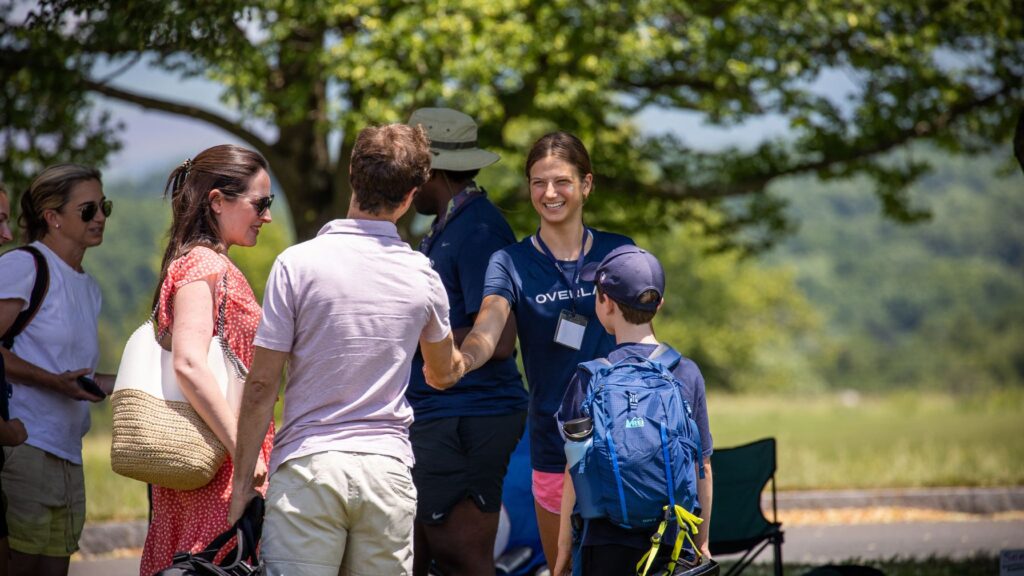
Even if you’ve filled out every form, it’s still worth reaching out to the camp staff before your child heads off. A quick phone call or email can help ensure that any medical concerns—especially allergies—are clearly understood. You’ll get a better sense of how medications are managed, what emergency plans are in place, and how food is handled around allergies or sensitivities.
These conversations don’t just offer peace of mind. They also help camp staff be fully prepared to support your child from day one.
If Your Child is Attending Overland Summers:
At Overland Summers, health and safety are always front and center. While there’s no on-site nurse, each trip is led by staff who are trained in emergency response and allergy awareness. If your child has a food allergy, it’s important to review Overland’s Food Allergy Policy before the summer starts.
6. Follow the Packing List, but Customize Based on Your Child’s Needs
Most camps provide a detailed packing list or some level of gear advice, depending on the trip.
No packing list is the same, as each one is based on location, activities, and daily schedule.
Follow whatever advice you’re given and check off the essentials. From there, you can think about personal touches that might make your child feel more at ease.
Maybe that’s an extra hoodie if they run cold or their favorite pillowcase to make their bunk feel more like home. Of course, be practical here. Most camps have limited space, and overpacking can be just as harmful as not having the right comforts.
Be sure to check the packing guidelines for the specific camp your child is attending—for example, Overland Summers provides detailed packing lists tailored to each of their trips and destinations.
7. Add Small Comforts from Home
Even experienced campers get a little homesick now and then. That’s why one gentle strategy for preparing for summer camp is to pack a few small comforts from home.
This could be a favorite stuffed animal, a small family photo, or a note from mom tucked into their bag.
These little touches won’t weigh down the duffel, but they can have a big emotional impact as a reminder that home isn’t far away.
8. Normalize Homesickness and Share Coping Strategies
Knowing how to prepare for summer camp is knowing how to openly talk about the possibility of homesickness.
Start by letting them know that it’s okay to feel homesick. From there, you can give them some simple strategies to work through those feelings, such as writing in a journal or joining group activities even when they’re feeling low.
Remind them that those feelings usually fade quickly and that pushing through them builds resilience.
Predictability is one of the best ways to help kids manage anxiety.
9. Let Your Child Lead Part of the Preparation
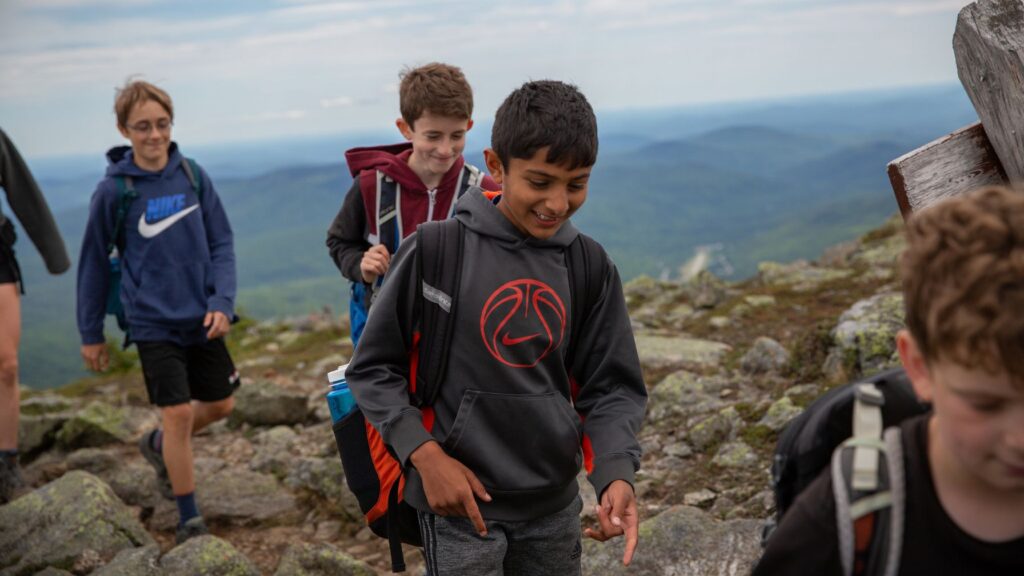
Let your child take an active role in getting ready for camp.
If they feel in charge of the getting-ready process, they’ll be more excited to get out there.
We always recommend that parents allow their kids to take the lead on age-appropriate tasks, like reading through the camp welcome materials or helping choose which optional activities they’d like to try.
During the process, they can also ask questions or look through photos and videos on the camp website. The beauty of working collaboratively is that it turns preparation into a shared experience.
10. Stay Upbeat During Drop-Off to Model Confidence and Calm
After all the to-do lists are checked and the bags are packed, the final step is the drop-off.
What many parents don’t realize is that they’re more in control of how the situation goes than they think.
Your attitude can set the tone. If you’re nervous or teary, they’re likely to mirror that. But if you project confidence and calm, they’ll feel more secure heading into their new environment. This is especially true if they’re very young.
Stay upbeat! Hug them, tell them “You’ve got this,” and avoid dragging out the goodbye. Even if you’re feeling emotional inside (which is totally normal!), staying composed helps reassure your child that they’re ready and that you believe in them.
Selecting the Right Camp
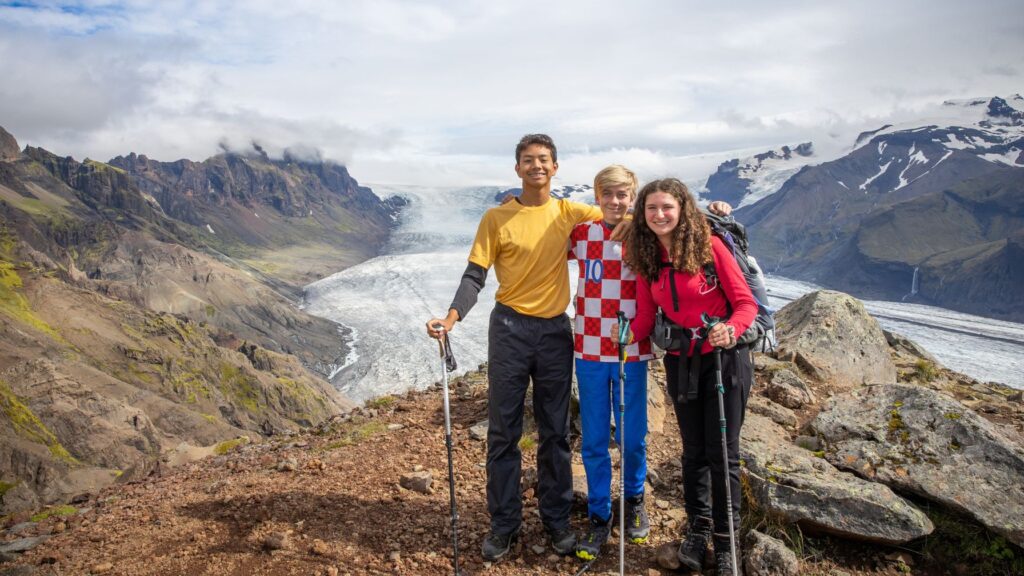
Choosing the right camp is just as important as prepping for it!
A poor fit can lead to a disconnected experience. You want your child to thrive and be confident, right? So, explore camps based on their age, personality, and interests.
There are many types of camps to explore:
- Adventure camps focus on outdoor activities like hiking, kayaking, and backpacking. They’re great for active, nature-loving kids.
- Service-oriented programs, like our Alaskan trip, combine travel with meaningful community involvement.
- Language immersion camps are better for older children, as they often take place overseas. We recommend them for those who can appreciate a culturally enriching experience.
Just as important is verifying the camp’s credentials.
Accreditation from organizations like the American Camp Association (ACA) shows that the program meets strict safety, staffing, and programming standards. Accredited camps are held accountable for everything.
Our team at Overland Summers takes these standards seriously. With over 40 years of experience and a reputation for small-group, well-supported travel programs, we combine structure, safety, and intentionality in every trip.
Request a catalog to learn more!
Leadership and Staff
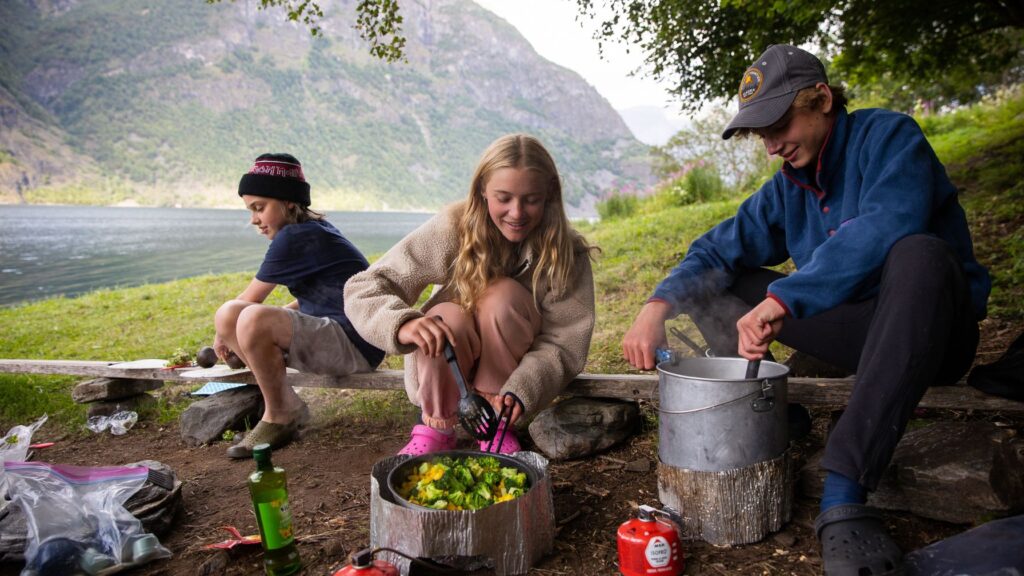
Part of preparing for summer camp as a parent is knowing who’s leading it. Great camps require strong leadership. Directors should be able to connect with the kids and offer support, safety, structure, and fun the whole way through.
Look for camps that are transparent about their hiring and training practices.
There should be staff onboard who have experience working with children and certifications in first aid and CPR.
Camper-to-staff ratios matter too. Smaller groups mean more personalized attention.
Here at Overland Summers, we keep our camper-to-staff ratio small, and all of our leaders are educators, outdoor professionals, or students from top colleges who go through a rigorous training process before the summer begins.
Apply to be a leader with Overland Summers!
Packing Essentials
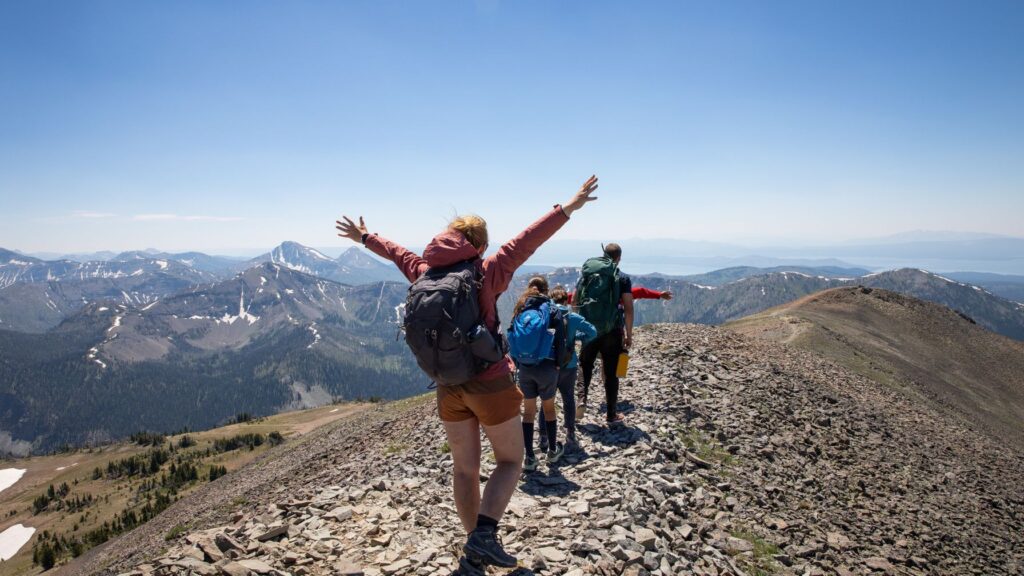
You have one chance to get packing right, so you don’t want to forget anything!
Let’s take a look at some of the must-have gear, no matter what kind of trip they’re going on.
Clothing and Gear
Start with the basics.
Your child should have moisture-wicking layers, a warm fleece or jacket, and sturdy shoes or hiking boots. Period. This should be the baseline, regardless of where they’re headed.
Depending on the camp, your child may also need a raincoat, swimsuit, hat, and daypack. At Overland Summers, for example, campers are often outdoors from morning to night, so having durable, versatile clothing is best.
Pro Tip: Make sure their footwear is broken in! No child wants to spend a summer with blisters because they had stiff boots on the day-one hike.
Personal Items
Every camper should have a complete toiletry kit, including biodegradable soap, a toothbrush, and sunscreen.
Beyond that, they should have a sleeping bag, pillow, headlamp or flashlight (and some extra batteries), and a reusable water bottle.
Of course, we can’t forget the personal items either. Looking at you, Mr. Teddy Bear!.
Labeling Everything
“Hey, that’s my shampoo!”
Camps are busy. There’s a lot going on, and it’s easy for things to get mixed up or lost. With a permanent marker, it’s easy to mitigate arguments over what belongs to whom. Mark everything with your child’s full name or initials, from socks to toiletries..
Frequently Asked Questions
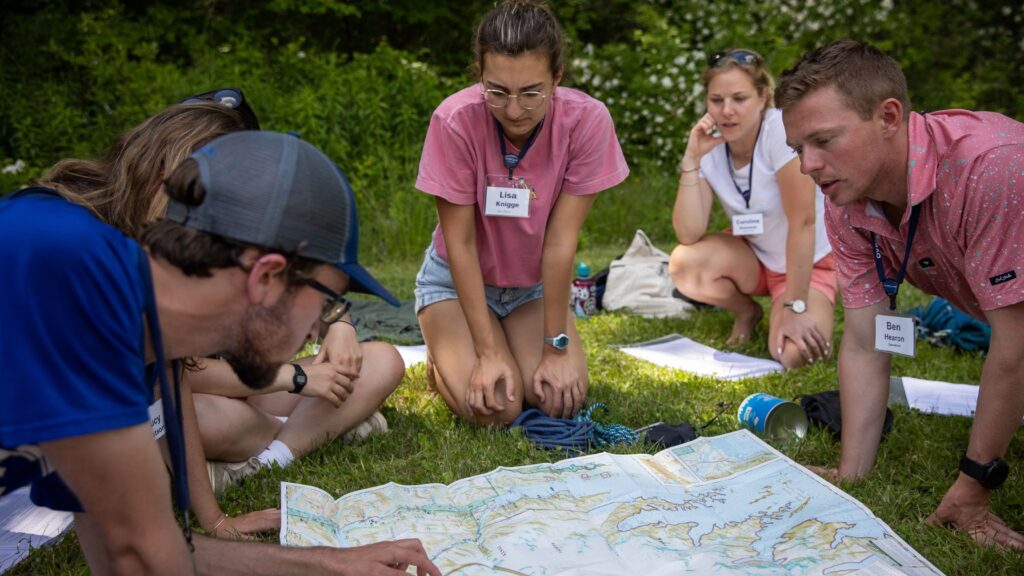
What should you not pack for summer camp?
Avoid packing anything valuable, breakable, or prohibited by the camp. This includes electronics (unless allowed), food that can attract animals or spoil, expensive jewelry, and aerosol sprays. Always follow the camp’s “do not bring” list — it’s there for safety and practicality.
How can I stop being nervous about going to summer camp?
Nervousness before camp is completely normal! To ease anxiety, learn about the camp ahead of time, talk to former campers if possible, pack familiar comforts from home, and practice some independence at home. Confidence builds when kids feel prepared and supported.
What is the best age to start going to summer camp?
Most kids are ready for overnight camp between ages 7 and 10, depending on their maturity and comfort with being away from home. Day camps can start even earlier. Look for signs of readiness like sleeping over at a friend’s house or handling daily routines independently.
What should I do before summer camp starts?
Before camp, help your child review the daily schedule, complete all health forms, label their gear, and pack thoughtfully. Encourage open conversations about what to expect and reassure them that it’s okay to feel excited and nervous. Preparation builds confidence.
When should I start packing for summer camp?
Start packing 1–2 weeks before camp begins. This gives you time to check off the full camp packing list, do laundry, and shop for missing items without rushing. Early packing also helps your child feel more mentally prepared for the adventure ahead.
Free Download
How To Choose A Summer Adventure For Your Child
Get first-hand insights into what you should look for when choosing the next summer travel adventure for your child.
Making the Most of Summer
If there’s one thing we’ve learned after running a successful summer camp for 40+ years, it’s that a little preparation goes a long way. A trip away from home should be meaningful and memorable for your child, and the things you start doing now can impact that.
Start preparing for summer camp with the steps above, and we promise you’ll be off to a much better start before your child even steps foot outside.
At Overland Summers, we believe summer should be more than just a break. It’s a time for your child to continue growing, challenging themselves, and connecting with others. With uniquely designed programs in the U.S. and abroad, we have trips for every kind of camper.
Learn more about who we are, how we operate, and what our summer camp philosophy is all about. Start prepping for camp by getting in touch with us today!
